
Catastrophe, not war stories: how the COVID-19 crisis will be written?
A legion of aspiring novelists may have written it. But who is going to read the fiction of the lockdown? It is painful. It is personal. And, we have all lived it. Will we want to read about it, wonders Oxford Literature Professor Marina Mackay? It may be a very long time, she says, before we want to read about the pandemic – or before the definitive work is written.
But the stuffed inboxes of literary agents stand testament to a creative surge among the population, as thousands of aspiring writers have eschewed learning a language or practising the piano during lockdown, in favour of writing literature. In the last few weeks, agents report, a tsunami of long-neglected manuscripts has fallen on a stunned publishing industry, which weakly predicts a second wave in the autumn, as ‘great coronavirus novels’ are completed.
In the last few weeks, agents report, a tsunami of long-neglected manuscripts has fallen on a stunned publishing industry, which weakly predicts a second wave in the autumn, as ‘great coronavirus novels’ are completed
A few new writers, maybe even some literary stars, could emerge from the pandemic, having had the time to write. But it is a notoriously fickle field, with the chances of a first time novel being published traditionally ‘very slim’.
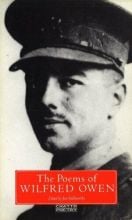
A pantheon of poets, including Wilfred Owen and Robert Graves, emerged from the First World War, speaking of the senseless sacrifice of a generation and of something bigger than themselves. There could be parallels with under-protected NHS staff. But while much of the language around COVID-19 has been of war – particularly, the Second World War, Professor Mackay says, in terms of literature, the current pandemic has more potential links to catastrophe stories, rather than traditional war fiction.
War writing is usually set against the background of conflict – energy and action are central to the experience and there is often a question lingering as to whether someone had a ‘good war’. Frequently, there is also a focus on whether the Government is handling the war well, whether they could do something different to make it all go away. In the case of COVID-19, although different measures could and have been taken in different countries, the pervading sense of powerlessness in the face of a pandemic, lends itself more to catastrophe fiction.
In terms of literature the current pandemic has more potential links to catastrophe stories, rather than traditional war fiction
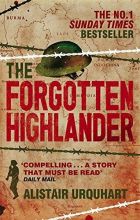
Previously, it has also taken decades for classic war novels and memoirs to emerge. And war literature often comes from a sideways angle, says Professor Mackay. The Ministry of Fear by Graham Greene was published in 1943, but was set against the background of the war, rather than being a personal account. Memoirs of harrowing events often come decades later. Some, such as The Forgotten Highlander, Alastair Urquhart tale of the Far Eastern war, were published 70 years later.
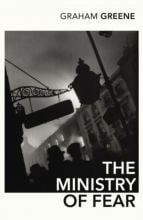 There is always a lag with a novel,’ says Professor Mackay. While the First World War is renowned for poetry, it took many years before what we think of as the definitive fiction appeared. It was a decade before All Quiet on the Western Front, by Eric Remarque, was published, detailing the impact of the Great war on German soldiers.
There is always a lag with a novel,’ says Professor Mackay. While the First World War is renowned for poetry, it took many years before what we think of as the definitive fiction appeared. It was a decade before All Quiet on the Western Front, by Eric Remarque, was published, detailing the impact of the Great war on German soldiers.
It is not just the time it takes to write a book, though. ‘After World War II, people didn’t want to read about it,’ says Professor Mackay.
And, for most people, the pandemic has been a time of inaction, ‘The drama has taken place behind closed doors,’ she says. ‘There have been personal tragedies, but they have been hidden away.’
There have been absurdities, says the professor, wondering what sort of fiction could emerge from this, but, ‘For the most part, for most people, it has been monotonous but not necessarily literary.’
There are precedents of writing of wearisome experience. Published in 1947, The Plague by Albert Camus, is a fictional account of an epidemic, which can also be taken as a symbol for the German occupation of France, ‘The furious revolt of the first weeks had given place to a vast despondency, not to be taken for resignation, though it was none the less a sort of passive and provisional acquiescence.’
There are precedents of writing of wearisome experience...The Plague by Albert Camus is a fictional account of an epidemic, which can also be taken as a symbol for the German occupation of France
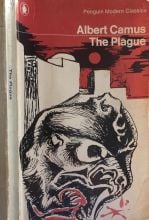
Professor Mackay speculates that there could be stories ‘framed against the altruism and selfishness’ that has been exposed by the pandemic. But she says, ‘This will be unlike classic war writing...there is an unreality and an absurdity out there.’
‘There have been moments of bathos,’ according to Professor Mackay. ‘At the beginning we had the hoarding of loo rolls, then we heard about trips to Barnard Castle....We failed in all sorts of ways. It has not been our finest hour.’
Although there has been tragedy, a majority of people have not been heroic and have had no adventures, inside their own homes. And it is unlikely there will be an appetite to read about how someone feels about being locked-down, when we are relishing new freedoms. Professor Mackay, who has written extensively about war fiction, points out that, in catastrophe writing, people feel powerless in the face of ‘impending doom’.
 Many books of the 1950s and 60s were framed against such a background, as the world lived through the nuclear build-up and the Cold War. It led to a whole genre, including The Day of the Triffids, by John Wyndham and, although HG Wells’s War of the Worlds was written in the 19th century, it was made into a radio play, a film and even inspired a musical in the second half of the 20th century, as expressions of powerlessness.
Many books of the 1950s and 60s were framed against such a background, as the world lived through the nuclear build-up and the Cold War. It led to a whole genre, including The Day of the Triffids, by John Wyndham and, although HG Wells’s War of the Worlds was written in the 19th century, it was made into a radio play, a film and even inspired a musical in the second half of the 20th century, as expressions of powerlessness.
Maybe there will be a three-part mini-series about SAGE? Or, perhaps, we will return to cinemas to see the Rock find out Who caused Coronavirus? or Coronavirus: The Movie?
Catastrophe stories are very much in vogue. Recent years have seen numerous disaster movies, from Independence Day in 1996 to Contagion in 2011 and Geostorm in 2017.
Personal experience of the pandemic, written in these early days, may not be the stuff of literary agents’ dreams or Hollywood blockbusters. But agency and plot could be found in the search for a vaccine or in the political intrigue or scientific arguments and disputes. Maybe there will be a three-part mini-series about SAGE? Or, perhaps, we will return to cinemas to see the Rock find out Who caused Coronavirus? or maybe we will watch Coronavirus: The Movie?
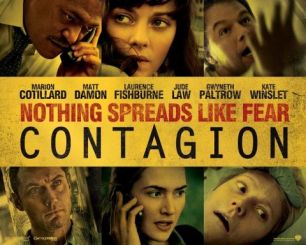
Professor Mackay is the author of several books on war writing, most recently, Modernism, War and Violence and Ian Watt: The novel and the wartime critic.